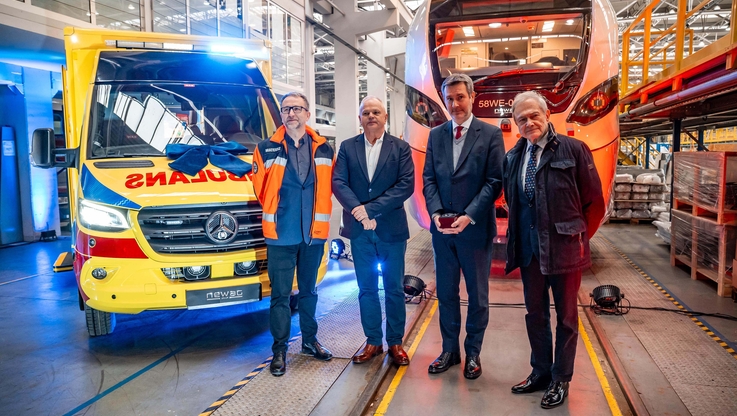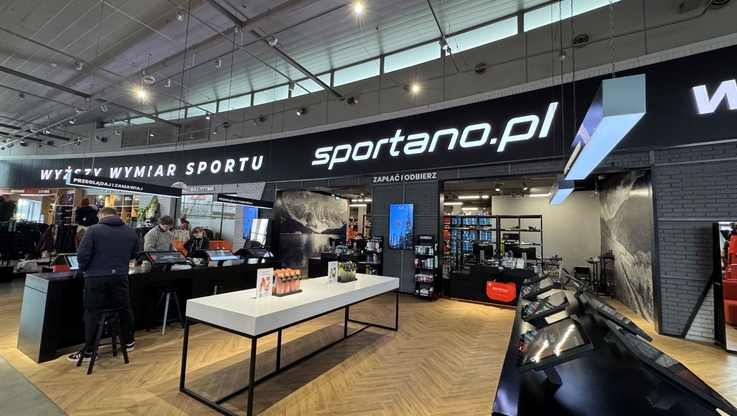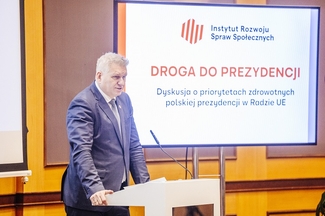Pobierz materiał i Publikuj za darmo
Podstawa prawna:
•European Commission continues to designate coking coal as a Critical Raw Material in its 2017 review
•Coking coal continues to enjoy a strong market and spot price environment with hard coking coal prices above US$200/t FOB Australia
•Market analysts forecast underinvestment in new coking coal mine development has potential to result in sustained high coking coal prices
•European coking coal supply and demand fundamentals continue to improve with recovery of the steel making sector and increased reliance on imported coking coal as European production declines
•Polish Government strongly supports development of new, modernised coal mines in order to meet future demand
•Increasing demand for electric vehicles is expected to drive growth in steel supply to the European automobile industry
•Large infrastructure development programs across Europe including High Speed 2 Rail in the UK, Poland's transportation redevelopment plan, and China's Belt and Road Initiative to contribute to European steel consumption
Prairie Mining Limited ("Prairie" or "Company") notes market fundamentals continue to improve for Prairie's two large-scale Tier One coking coal projects as the European Commission reaffirms coking coal as a "Critical Raw Material" for Europe.
Prairie remains ideally positioned to supply coking coal to meet Europe's steel demand in the future.
Prairie's Chief Executive Officer Ben Stoikovich commented "The outlook for increased coking coal demand from Europe's steel producers coupled with reducing European supply is creating a ‘perfect storm' for Prairie to become the go-to supplier of the critical raw material. Europe's steel producers which supply the vast automobile industry are now noting the potential increase in demand for steel due to the move towards vehicle electrification over the coming decades. We are well positioned to supply the required coking coal to produce the steel from the heart of Europe's steel making industry."
COKING COAL REMAINS A CRITICAL RAW MATERIAL FOR EUROPE
The European Commission has confirmed coking coal's status as a Critical Raw Material in its 2017 list, which features 27 raw materials and updates the 2014 list. The primary purpose of the list is to identify the raw materials with a high supply-risk and a high economic importance to which reliable and unhindered access is a concern for European industry and value chains.
Following an objective methodology, the list provides a factual tool for trade, innovation and industrial policy measures to strengthen the competitiveness of European industry in line with the renewed industrial strategy for Europe, for instance by:
•identifying investment needs which can help alleviate Europe's reliance on imports of raw materials;
•guiding support to innovation on raw materials supply under the EU's Horizon 2020 research and innovation programme; and
•drawing attention to the importance of critical raw materials for the transition to a low-carbon, resource-efficient and more circular economy.
Importantly for both of Prairie's projects, it is expected that the list will incentivise the European production of critical raw materials through facilitating the launching of new mining activities.
Table 1: 2017 Critical Raw Materials
Antimony Baryte Beryllium Bismuth
Borate Cobalt Coking Coal Fluorspar
Gallium Germanium Hafnium Helium
HREEs Iridium LREEs Magnesium
Natural graphite Natural rubber Niobium PGMs
Phosphate rock Phosphorus Scandium Silicon metal
Tantalum Tungsten Vanadium
European steel makers - including the newly-formed ThyssenKrupp Tata Steel Joint Venture - are now looking ahead to supply a changing automobile industry with the introduction of electric vehicles and concurrently supply numerous major European infrastructure programs.
•Increasing demand for ultra-low emission vehicles is expected to drive growth in steel supply to the European automobile industry. Almost 0.5 tonnes of coking coal are required to produce the structural, electrical and plated steel for each electric car. Specifically, steel is an important component of the electric vehicle structure and will be in the powertrain, enhancing the electric motor's efficiency, range and power. Further, lithium-ion batteries commonly used in electric vehicles will require steel while infrastructure including the production of machinery, charging units and "refuelling hubs" for electric vehicles will also require steel.
•According to BHP Billiton, China's Belt and Road Initiative to advance globalisation and trading - which includes several European countries including Poland - could result in up to 150 million tonnes of incremental steel demand.
•UK infrastructure projects including the High Speed 2 Rail Line and the construction of the Hinkley Point C Nuclear Power Station are expected to use over 3 million tonnes of steel - equivalent to 375 London Olympic Stadiums.
STRONG COKING COAL ENVIRONMENT CONTINUES
Hard coking coal prices have returned to levels above US$200/t FOB Australia mainly attributable to proactive buying in the seaborne market by steel producers concerned about future potential supply disruptions from Australia due to weather.
Longer term, market analysts have suggested recent and sustained underinvestment in new mine development has the potential to result in a lack of new supply in coming years which may sustain higher coking coal prices even in a lower demand scenario. According to industry analysts there is an expected decrease in supply of 0.5% per annum until 2020.
POLISH ECONOMISTS AND INDUSTRY EXPERTS ACKNOWLEDGE PRAIRIE AS CLEAR FUTURE SUPPLIER
A key independent adviser to the Polish Government, the Polish Academy of Sciences , recently published a report confirming Prairie's Jan Karski and Debiensko Mines as obvious sources of future coking coal supply for the European steel industry. The Polish Academy of Sciences is a statutory institution which provides expert advice to the Polish Government and is one the most prestigious and reputable academic institutes in Poland. The report suggested:
"Both domestic and European demand for coking coal is also expected to increase. However, the supply of this raw material is low - 85% of coking coal used in the EU in 2016 was imported. Therefore, Polish authorities are interested in promoting both the material and domestic steel industry, in order to secure a bigger share of European market to Poland - especially in Central Europe.
It is necessary to open new seams at existing mines, or building new mines, to guarantee the energy security of the country and to ensure sufficient supply of material for the steel industry (in Poland and in European Union)."
Importantly, the report concluded that private mining businesses such as Prairie would indeed complement, rather than compete, with state-controlled mining companies.
"The Polish mining sector faces a great opportunity, as foreign private companies shall bring in the best innovative technologies and international practices in undertaking and implementing modern mining projects, thus leading to the natural transfer of innovative technologies to Polish industry."
The findings of the report are in line with the Polish Commercial and Industrial Chamber of the Metallurgical Sector which in a recent paper acknowledged:
"One of the most important cost components, decisive for the economic standing of the steel sector, is the price of coking coal, and resulting prices of coke. It is worth remembering that undisturbed and attractively priced supplies of such materials from Polish mining and coking plants shall continue to be the base for development and competitive advantage of Polish steel industry and operation of directly and indirectly connected sectors.
Polish coking coal is attractive to the steel sector due to its price, resulting from high quality and geographic rent. In the event of insufficient supply of domestic coal, necessary imports (from countries like Australia and the USA) could have significant impact on both prices and flexibility of production in the sector ".
POLISH GOVERNMENT HIGHLIGHTS THE NEED FOR NEW COAL MINES SUCH AS PRAIRIE'S PROJECTS
In December 2017, Vice Minister of Energy Mr. Grzegorz Tobiszowski publicly discussed the requirement of investment into the Polish coal mining industry which included the construction of new coal mines:
"To be effective we should invest in new technologies, using modern equipment, but also consider building new shafts and new mines - and then we will be able to mine coal effectively"
During a speech in the same month, Minister of Energy, Mr. Krzystof Tchorzewski discussed the need for at least two new coal mines in Poland. The Minister stated:
"...today we face this challenge. There is a requirement for investment...into new longwalls, but also the necessity to build new mines is looming"
Prairie will pioneer the introduction of international best practice in mine design, production organisation and technology to deliver substantial operational and product quality improvements in the development of its Jan Karski Semi-Soft Coking Coal Mine in the Lublin Basin and its Debiensko Hard Coking Coal Mine in Upper Silesia.
Coal mining technology in Poland has not kept pace with international best practices, thereby negatively impacting efficiency of existing mines. Prairie will start with a "clean slate", drawing on modern international experience in all areas of development including:
•Modern exploration techniques - provide more accurate and reliable estimation of resources and improved mine planning
•Optimized targeting of coal seams - focuses on maximizing net present value by targeting highest quality coal seams first
•Modern mine design - reduces operating costs, improves coal yields and optimizes logistics
•New technologies - focuses on increased automation, improved productivity and safety
•Improved Labour Organisation - flexible shift structures, bonuses based on production targets aimed at increasing productivity, reducing costs and aligning staff interests with corporate goals
To view this announcement in full including all illustrations and figures, please refer to www.pdz.com.au
For further information, please contact:
Prairie Mining Limited Tel: +44 207 478 3900
Ben Stoikovich, Chief Executive Officer Email: info@pdz.com.au
Sapan Ghai, Head of Corporate Development
Więcej na: http://biznes.pap.pl/pl/reports/espi/all,0,0,0,1
kom espi zdz
Pobierz materiał i Publikuj za darmo
bezpośredni link do materiału
| Data publikacji | 13.12.2017, 09:38 |
| Źródło informacji | ESPI |
| Zastrzeżenie | Za materiał opublikowany w serwisie PAP MediaRoom odpowiedzialność ponosi – z zastrzeżeniem postanowień art. 42 ust. 2 ustawy prawo prasowe – jego nadawca, wskazany każdorazowo jako „źródło informacji”. Informacje podpisane źródłem „PAP MediaRoom” są opracowywane przez dziennikarzy PAP we współpracy z firmami lub instytucjami – w ramach umów na obsługę medialną. Wszystkie materiały opublikowane w serwisie PAP MediaRoom mogą być bezpłatnie wykorzystywane przez media. |






